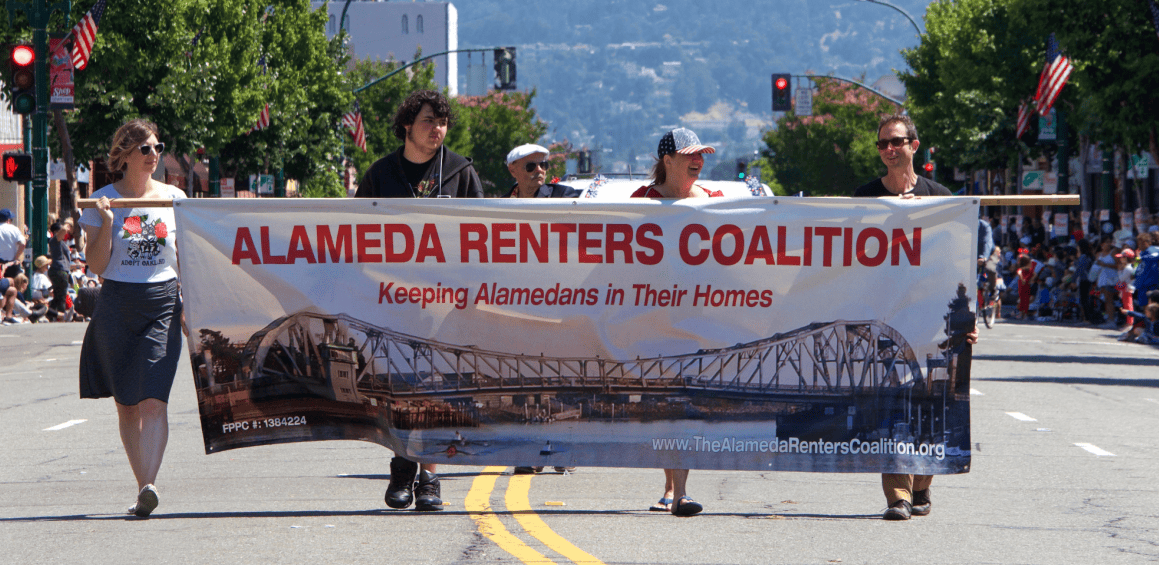Landlords sue over new S.F. law regulating tenant buyouts
Several groups representing property owners have filed a lawsuit seeking to overturn San Francisco’s new ordinance requiring landlords to provide certain disclosures when they negotiate buyouts with tenants.
Ordinance 225-14 was passed by the San Francisco Board of Supervisors in October and took effect March 7. The lawsuit was filed March 5 in Superior Court.
The plaintiffs argue that the ordinance violates the landlords and tenants’ right to free speech because certain forms must be filed before they can talk to each other. They say it also violates their right to privacy and creates disparate treatment because their identity and how much they pay tenants will be publicly disclosed, but only after the tenants’ identities have been redacted.
“We want the whole thing scrapped,” said Janan New, executive director of the San Francisco Apartment Association, the lead plaintiff. “We believe that an owner and a resident should be able to privately negotiate whatever sort of contract they want to negotiate. That doesn’t need to be in the public realm.”
Until now, there has been no way to track buyouts. But as market-rate rents have skyrocketed, anecdotal evidence suggests that buyouts of rent-controlled tenants — in the tens or even hundreds of thousands of dollars — are becoming more common. Some owners see them as a quicker and cheaper alternative to Ellis Act and owner-move-in evictions, which are heavily regulated.
The new law is designed to prevent tenants from feeling coerced into signing agreements and make it easier for them to figure out the going price for buyouts. It applies to buyouts of rent-controlled and uncontrolled units, although the latter is less common. It was sponsored by Supervisors David Campos, John Avalos, Jane Kim and Eric Mar.

Step 1. Before an owner can begin discussing a buyout, the landlord must provide the tenant with a “Pre-Buyout Negotiations Disclosure Form” provided by the San Francisco Rent Board. The three-page document says the tenant does not have to enter into an agreement, may consult an attorney or tenants’ rights organization (about a dozen are listed), and may a rescind a buyout agreement for up to 45 days after the agreement is signed. The landlord must get the tenant’s signature on this document and retain it, but does not have to file it.
Step 2. The landlord must then file a one-page declaration with the Rent Board declaring under penalty of perjury that he or she has provided the disclosure form to tenants. The law does not state how much or little time can pass between steps 1 and 2.
Step 3. Once a buyout has been reached, the landlord must file a copy of the agreement with the Rent Board no sooner than 46 days and no later than 62 days after it is “executed by all parties.”
A landlord who misses any step can be sued by the tenant, a nonprofit tenants’ rights organization or the city attorney. If the landlord loses the case, the landlord must pay the plaintiff’s attorney fees, but if the landlord wins, the plaintiff does not have to pay the landlord’s attorney fees, said Shauna Matlin, an attorney who represents landlords.
The Rent Board must create a searchable database with information from these filings, after personal information about the tenant has been redacted. The database will not be online, but can be viewed at the Rent Board’s office. The board also must provide an annual report that lists all units subject to buyouts. The report will be posted online.
Since the law took effect, the Rent Board has received two declarations from landlords stating their intent to negotiate buyouts, said Sandy Gartzman, the board’s senior administrative law judge. She explained that if landlords entered buyout negotiations before March 7, they do not have to file the declaration, but they do have to file a completed buyout agreement and comply with other aspects of the new ordinance.
The law could prevent some landlords from converting their units into condominiums. This could happen if a senior, disabled or catastrophically ill tenant has vacated a unit under a buyout agreement after Oct. 31, 2014, or if two or more tenants who are not senior, disabled or catastrophically ill have vacated units under buyout agreements — so long as the agreements were entered after Oct. 31 and within the 10 years prior to the condominium conversion application. A senior in this case is a person 60 or older who has been living in the unit for 13 years or more.
James Parrinello, an attorney representing the plaintiffs, said the ordinance could dissuade landlords from offering voluntary buyouts, which could hurt tenants who want one. “The ordinance creates a lot of liability for owners if they enter one of these agreements. I think a lot of owners will just back off these things,” he said.
In the past, some landlords offered buyouts to tenants who were violating their lease because it was easier than filing an unlawful detainer lawsuit. In the future, you could see more landlords filing an unlawful detainer first. If the landlord offers a buyout after having filed such a case, “the new disclosures are not required,” because it is not considered a buyout agreement under the ordinance, Parrinello said.
Kathleen Pender is a San Francisco Chronicle columnist. Net Worth runs Tuesdays, Thursdays and Sundays. E-mail:[email protected] Blog: http://blog.sfgate.com/pender Twitter: @kathpender
Source: SFGate.com















 Accessibility
Accessibility